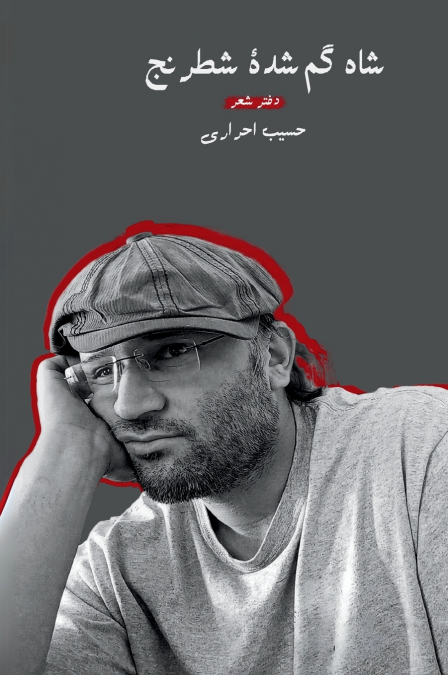
Hasib Ahrari
Shāh-e Gomshuda-ye Shatranj (The Lost King of Chess) by the seasoned poet from Afghanistan Hasib Ahrari, is a masterful collection of Persian poetry that bridges classical themes with contemporary reflections. Ahrari weaves intricate imagery with philosophical depth, creating a tapestry of emotions and insights that resonate with readers from all walks of life. Spanning over 500 pages, this powerful and deeply evocative work is divided into five distinct sections:*Ghazals (Ghazal-hā): This traditional lyrical poems are rich with emotion and philosophical depth that challenges religious hypocrisy, and are marked by sharp irony, fearless critique of clerics and institutions. *Incomplete Ghazals (Nātakmīl Ghazal-hā): These are fragmented yet resonant verses that offer glimpses into unfinished thoughts and open-ended longing, where the emotional momentum is considered more relevant than structured closure. *Single Verses (Tak-Bayt-hā): Standalone couplets are marked by their brevity, depth, and immediacy, distilling profound reflections into compact yet resonant poetic expressions. *Do-Baytis and Rubāʿiyāt (Do-Baytī-hā va Rubāʿiyāt): Classical four-line verses that reflect themes from mysticism and social criticism to romantic longing. *Nimā’ī and Free Verse Poems (Nīmāī va Sepīd-Sorūd-hā): The last section covers modern, unbound poems free in form but deliberate in rhythm. The Lost King of Chess is both a personal testament and a poetic mirror of a generation shaped by displacement and resilience. It is a book that speaks to the soul with sorrow, beauty, and